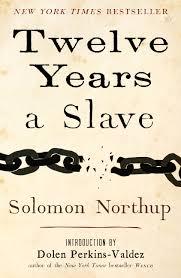In choosing Twelve Years a Slave as a One Book companion text to featured selection Cold Mountain, the Library has sought both to broaden and enhance the discussion of a critical yet awful time in our nation’s history. In doing so, it has chosen a text that can—sadly—also offer commentary on the America we live in today.
The true narrative of Solomon Northup, a free black man kidnapped and enslaved for 12 years, Twelve Years a Slave displays the humanity of a man living in a society that does not recognize it. Unfortunately, that description could be written of Eric Garner, of Tamir Rice, of Michael Brown, of Sandra Bland … and too many others. Our country has certainly progressed a far way from the era of slavery—but it is also certain that we still have far to go.
When we question today the anger and the protests that have followed in the wake of these tragic deaths, Solomon Northup’s insights from the 1850s still ring true. In describing an attack from a white overseer, he recalls, “No man, in his full strength, can stand undismayed, in the presence of the ‘king of terrors.’ Life is dear to every living thing ... At that moment it was dear to me, enslaved and treated as I was” (106). We can hear the echoes of the #blacklivesmatter right here.
When Northup was writing this account, much of the country still could not believe that someone with his color skin was as intelligent, as feeling—as human—as they. His response also responds to unspoken prejudices today: If those looking from another vantage point—be it race, class, locale—take time to really look at the underserved, discounted population, “they will find that ninety-nine out of every hundred are intelligent enough to understand their situation, and to cherish in their bosoms the love of freedom, as passionately as themselves” (171). Everyone in our society—be it 100 years ago, today, or another century from now—wants—nay, demands and deserves—full economic, political, and social access.
An incredible element of Northup’s chronicle is that it is not an angry one. He held an incredible empathy for those who held him and the rest of his race back: “It is not the fault of the slaveholder that he is cruel, so much as it is the fault of the system under which he lives” (170). And it is works like his that seek to overturn—through exposure and education—that system. Today, it is through movements like #blacklivesmatter, protests like that of the University of Missouri football team, treatises like Ta-Nahisi Coates’ Between the World and Me, and conversations across college campuses about the meaning and reality of white privilege that help cast off the shade of our “system.”
Changing the system altogether—helping our country fulfill its promise that all are equal under the law—is still a tall, yet essential, order. But we look to discussions like those coming in this One Book, One Philadelphia season to help us on the path.
Have a question for Free Library staff? Please submit it to our Ask a Librarian page and receive a response within two business days.

